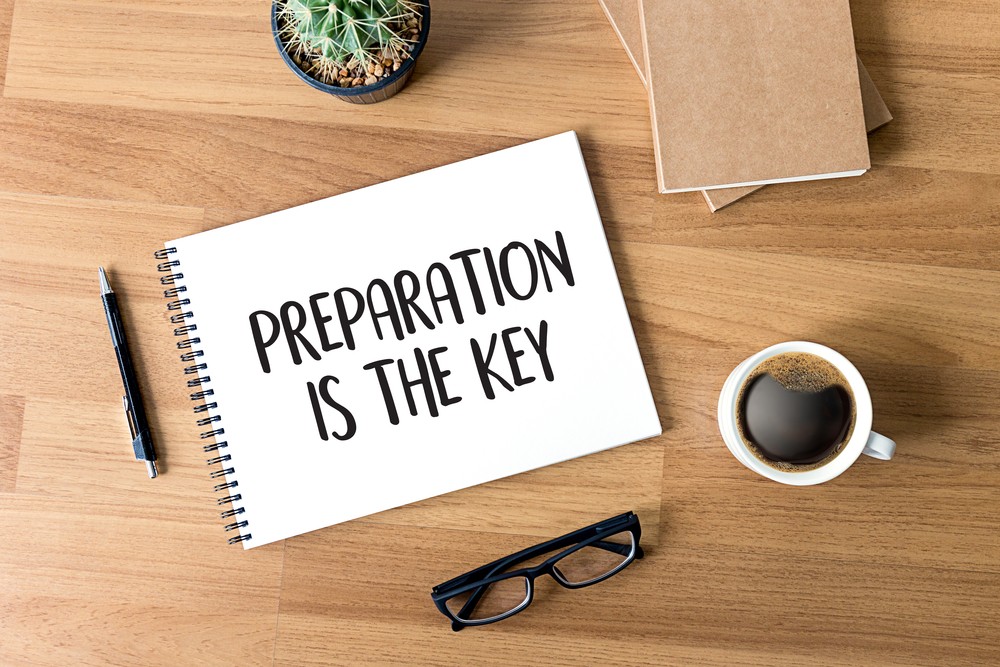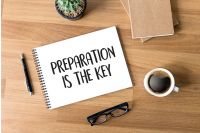The Cost of Failing: Why Passing the First Time Matters
The Cost of Failing: Why Passing the First Time Matters
December 14, 2017
The Cost of Failing: Why Passing Your Licensing Exam the First Time Matters
You might be thinking: Surely I don’t need an article to tell me why I need to pass my licensing exam.
I know why: Getting licensed is a necessary step in my career.
We go into our licensing exam experience wanting to pass. When you combine your years of education and supervised hours required to just sit for your license, this exam has been 4, 8, or even more years in the making. You have the degree, you’ve studied, you’re ready to do this.
But the stakes are high. Maybe your confidence wavers when you walk into the test site. Maybe you second guessed yourself on answers you thought you knew. Maybe you just came down with a bad case of exam day jitters.
At AATBS, we’ve gone through the process and we know what’s at stake. We’ve also helped our peers through the negative experiences surrounding this exam and seen them through the tough times to becoming licensed.
Taking the licensing exam is a major undertaking. Like any major life experience, it can be fraught with fear and anxiety. Let’s take a look at the negative experiences that can arise while studying for your licensing exam and then how to plan properly to avoid them.
Negative Experience 1: The Financial Cost
Taking the licensure exam can be expensive. If you don’t pass the first time, that exam fee is duplicated since you have to take it again. Depending on the licensing exam you are taking, the cost to take and then retake the exam can range from $600 to $1400, not including additional state and testing center fees.
Most of this is out of pocket for candidates. Additionally, failing the exam potentially results in a loss of income growth and your current employment (depending on the state) due to your inability to operate at a higher licensed professional level. The income difference between an unlicensed mental health professional and a licensed professional can range. However, on average, it is around $20,000.1
But the true cost of the exam should you not pass goes beyond just the financial.
There’s also the personal, mental, and societal costs as well.
Negative Experience 2: The Personal Cost
When you studied the first time, was it difficult to find the time to study? Did you have to turn down social events or cut down on time spent with family? If you’re new to exam prep, are you prepared to sacrifice the time needed to study properly?
The personal cost of not preparing sufficiently the first time can be just as expensive as the financial cost of failure – the cost to you, your family, and your friends. How many times did you have to skip a dinner with friends? Miss a weekend trip with family? Or stay up after everyone else went to sleep?
Think of the sacrifices – the time, effort, and money – you will or have made to study for the exam. Should you have to retake the exam, that cost and those sacrifices are now doubled because you’ll have to put the effort and time into studying yet again.
How do you explain to your family, friends, and coworkers that you didn’t pass? It is never easy to admit that you did not succeed to those you care for and who care for you, especially when they were excited and confident for the next step in your career.
Negative Experience 3: The Mental Cost
Did you know that the pass rate for repeat exam test takers is only 39.4%, but the pass rate for first timers is 74%?2Why is that?
This is partly attributed to the mental anxiety associated with retesting. After not succeeding the first time, your mind might focus on negative thinking (e.g., how do I not fail again) rather than on positivity (e.g., I am preparing effectively to pass).3
The focus to avoid failing again can affect your mentality when it comes to studying, your confidence going back into your exam, and your expectation of passing. If you are already planning your consolation speech, you don’t have time to book that celebratory dinner.
In addition to preparing and expecting to fail, you have the added stress and pressure to pass before your application expires. Depending on your exam and state, you only have a limited number of attempts to pass the licensing exam before you become disqualified to be licensed in that state. Each attempt not only costs you financially, but the added stress in knowing that your continued failure to get licensed could lead to permanent disqualification in your state adds to the pressure to pass.
Negative Experience 4: The Cost to Others
Perhaps the most overlooked cost – but a tremendously significant one – of not preparing properly is the cost to society. With one in five adults suffering from a mental health condition and a steady increase of mental health issues in youth, the need for licensed professionals is very high.4 Should you fail your exam, you take away another caring, licensed professional that can help those in need now.
As you can see, it’s immensely important to make sure you are doing everything you can to prepare correctly for the exam from the start, whether it’s your first, second, or even third time studying.
It all starts with finding the right study materials for your needs. While the idea of spending a great deal of money and time on a study preparation program may seem lavish and unnecessary, as you can see, cost of failing is even higher.
There are many exam preparation programs out there. Take the time to reflect on your learning styles and needs when it comes to studying. Then do your research and find the right fit for you.
Yes, it’s an investment.
Ultimately, though, the initial cost is much less than the true cost of failure if you don’t succeed. People are counting on you.
And AATBS is here to be your support and guide throughout the entire process.
Ready to start studying?
Make an appointment with our Educational Coordinators to help you build your study plan.
Footnotes
1. Bureau of Labor Statistics, U.S. Department of Labor. (2017, October 24.) Occupational outlook handbook: Psychologists. Retrieved from https://www.bls.gov/ooh/life-physical-and-social-science/psychologists.htm ↩
2. The Association of State and Provincial Psychology Boards. (2016.) Association of State and Provincial Psychology Boards Examination for Professional Practice in Psychology (EPPP): 2015-2016 Annual technical report. Retrieved from http://www.asppb.net/?ScoresByDrProgram ↩
3. Winch, G. (2013.) 10 signs that you might have fear of failing….and 2 ways to overcome it and succeed. Psychology Today. Retrieved from https://www.psychologytoday.com/blog/the-squeaky-wheel/201306/10-signs-you-might-have-fear-failure↩
4. Mental Health America. (n.d.) The State of Metal Health in America. Retrieved from http://www.mentalhealthamerica.net/issues/state-mental-health-america ↩



